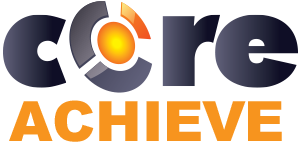Giving Back to Employees: Strategies for Impactful, Organizational Gifts
December, 12 2023
Other posts:
Enhancing Team Dynamics for Effective Group Decision-Making with LMS Integration
Organizations increasingly rely on collaborative efforts to solve complex problems, innovate, and adapt to change, but how do we ensure that collaboration is happening.
Maximizing Small Business Potential with Training Technology
Training technologies can push small businesses ahead of their competitors, but what are the factors that go into choosing the right technology?
Unlocking Employee Potential: The Transformative Benefits of an Interactive Learning Management System (LMS)
Interactive training allows for unlocking employee potential, but how is it done?
Building a Robust Sales Pipeline with Training
Every organization wants a streamlined sales pipeline, but building one requires a series of interlocking activities with one of the most important being training.
Strategies for Adapting In-Person Training to Online Platforms
Online training is one of the most flexible ways of delivering training across organizations, but how do you even begin to adapt in-person training into online?
Gifts don't have to be purely material, organizations can give back to their people by implementing some structural changes.
Entering the gift giving season, it is easy to believe that gifts are only something physical but given the amount of influence work has over people’s lives organization changes can have a positive impact on employee’s mood, health, and lifestyle. In this way, organizations can give the gift of a more positive workplace environment.
Flexible Work Arrangements
Flexible work hours, remote work options, and compressed workweeks offer multifaceted benefits that significantly enhance both employee well-being and job satisfaction. By affording employees greater control over their schedules, companies empower individuals to tailor their work hours around personal commitments, leading to improved work-life balance. This flexibility helps reduce stress, as employees can better manage family responsibilities, personal interests, and other non-work obligations.
Wellness Programs and Health Initiatives
The implementation of wellness programs, encompassing initiatives such as fitness classes, mental health workshops, and nutrition seminars, serves as a proactive strategy to elevate employee well-being and enhance overall productivity.
Professional Development Opportunities
Prioritizing investments in employees' professional growth through training, workshops, and mentorship programs is not just a strategic move; it's a demonstration of a company's unwavering commitment to its workforce. Continuous learning initiatives not only enhance employees' skills and competencies but also contribute to their personal and professional development.
Recognition and Rewards Programs
The impact of recognizing and rewarding employees for their hard work creates a positive and motivated workplace culture. Employee recognition programs, ranging from traditional employee of the month awards to performance bonuses, play a pivotal role in acknowledging individual and collective efforts. These programs not only celebrate achievements but also reinforce the connection between hard work and success, instilling a sense of purpose and pride among employees.
Flexible Benefits Packages
The importance of offering customizable benefits packages cannot be overstated as it reflects a profound understanding of the diverse needs of today's workforce. Providing employees with the flexibility to tailor their benefits, such as health insurance options, flexible spending accounts, or additional paid time off, recognizes the uniqueness of everyone’s circumstances. This approach not only respects the varied lifestyles and priorities of employees but also contributes to a more inclusive and supportive workplace culture.
Open Communication Channels
Open communication between management and employees is the cornerstone of a healthy and productive workplace. It is crucial to foster a culture where employees feel heard, valued, and comfortable providing feedback without fear of reprisal. Leadership can achieve this by actively seeking input, whether through regular team meetings, anonymous suggestion boxes, or dedicated channels for feedback. Implementing transparent communication about company goals, changes, and challenges builds trust and ensures that employees are informed stakeholders.
Employee Assistance Programs (EAPs)
Providing resources such as counseling services, financial assistance, and legal advice through Employee Assistance Programs (EAPs) represents a strategic investment in employees' well-being. EAPs offer a confidential and accessible avenue for employees to address personal challenges that may impact their professional lives. Counseling services can support mental health, offering employees a safe space to navigate stress, anxiety, or other personal issues.
Inclusive and Diverse Initiatives
Fostering a diverse and inclusive workplace has a profoundly positive impact on both organizational culture and performance. Initiatives such as affinity groups, diversity training, and mentorship programs play crucial roles in creating an environment where everyone feels valued and respected.
Employee Surveys and Feedback
Regular employee surveys serve as invaluable tools to gauge satisfaction and collect feedback, providing organizations with crucial insights into the sentiments and needs of their workforce. By encouraging employees to participate in these surveys, companies signal a commitment to actively listening and responding to their concerns.
All the above would have a direct and tangible impact on the wellbeing of employees. However, how they are implemented matters too. As touched on with communication, these benefits need to be transparent and clear for how employees should interact with them. In does not matter if all of these techniques are implemented if people do not know or how to access them.
Get started with CoreAchieve today for free.
Photo by ThisIsEngeering Raeng on Unsplash

Leave comment: